STOP Trafficking of Women and Girls
Anecdotal evidence as well as formal research seems to show that the practice of trafficking in women and girls is increasing in Tanzania, and thus we should no longer hide our heads in the sand and pretend this constituency does not exist.
Current interventions among women and girls who engage in the sex trade, target mostly the HIV/AIDS agenda. There are no interventions in existence that promote and protect the rights of women and girls who are being trafficked and sold into sexual slavery.
In fact the over arching attitude in Tanzania is that such people have no rights to speak of because in most peoples’ minds, since such women and girls are invisible, they should remain there, in the shadows, outside the protection of society and law enforcers.
The few interventions that exist are for rescue and rehabilitation of women and girls who engage in sex work, and while this may be commendable, there is need to look beyond women and girls who claim they are in ‘own choice’ sex work, and address the issue of trafficking of women and girls in sexual slavery, who are trapped in a vicious circle which was started by pimps who ‘bought’ the women and girls, and then send them out to work in the sex trade.
Such women and girls are treated and perceived as beasts of burden and they find it almost impossible to break free and get away from their ‘owners’ who not only use threats; violence; and intimidation; to hold on to the women and girls, but they also use psychological indoctrination which has made the women and girls who are being trafficked, live in fear of leaving the space in which they are held prisoners. They have been so oppressed that they have become afraid of the outside world; believing they would not be able to survive as ‘free people’.
The few rescue and rehabilitation programs for sex workers are being operated and run by Faith Based Organizations (FBOs) and their approach is one which uses religious script and tenets to rehabilitate sex workers. The FBOs do not seem to work with law enforcement agencies, believing that ‘Love and Compassion’ would save the women and girls who engage in sex work.
This approach may work for some sex workers who embrace exits from sex work and find other sources of income generation, but the approach does not address women and girls who are held hostage by human traffickers.
What is needed is a united, concerted effort, by all stakeholders who would address the practice of women and girls trafficking as sexual slavery. The stakeholders ought to include government; law enforcers; Civil Society Organizations (CSOs) which are focused on Human Rights in their programming; owners of hotels and guest houses whose staff can be trained to spot women and girls who are being sold in sexual slavery; the media which can coordinate civic education to stop trafficking; legal based CSOs which can conduct outreach to communities to inform them on legislation pertaining to Anti Human Trafficking; Members of Parliament who have the duty to inform their constituents on trafficking; Local Government Authorities (LGAs) which have the duty to oversee law and order in their hamlets; parents who sell their daughters to human traffickers without understanding the implications of what human trafficking entails; and most of all, young women and girls need to be informed about predatory men and women who befriend them, then sell them to human traffickers. The linkages between and among the different interventions is still limited and should be strengthened and improved. The various stakeholders need to find and maximize points which intersect; and areas which can complement the work being done so far, to scale up the national response to eliminate women and girls trafficking.
The linkages between and among the different interventions is still limited and should be strengthened and improved. The various stakeholders need to find and maximize points which intersect; and areas which can complement the work being done so far, to scale up the national response to eliminate women and girls trafficking.
Sex work is currently criminalized in Tanzania. At the same time, there seems to be no consensus on which the better approach is, and what protects women and girls more- between decriminalizing own choice sex work while prosecuting women and girls trafficking offenders; or continuing with the current law, the Sexual Offences Special Provisions Act (SOSPA 1998) which has criminalized sex work through the clause “Living off the earnings of prostitution….”.
We should note here that SOSPA 1998 has exempted the buyer of sex services from prosecution, which comes across as a gross injustice. Since “living off the earnings of prostitution….” Is a criminal offence, then the buying of sex services should also be criminalized.
The clause in SOSPA 1998 on prostitution is most difficult to enforce because the punters, the buyers of sex services are not punished. The outcome of the flaw in not apprehending and prosecuting the buyer of sex services makes it difficult for law enforcers to establish that money did exchange hands between a sex worker and a sex buyer. It also impedes the drive by law enforcers to apprehend and prosecute women and girls traffickers who are sold into sexual slavery.
Such clarity can only come about as our society in Tanzania engenders an open and democratic environment in which to have this debate and dialogue honestly and in which so called ‘own choice’ sex workers; buyers of sex services; and bar and hotel and guest house owners; play a central and leading role in determining what should be done to address the scourge of women and girls trafficking. Short of this open discussion, sex workers of all ilk, the own choice sex workers; the women and girls who are being trafficked through brothels and pimps; will continue to subsist in an environment that does them a great deal of harm. Our society needs to have conversations on women and girls trafficking and to come up with suggestions on strategies to stop the heinous crime. The first measure should be setting up structures to apprehend the buyers of sex services from women and girls who are being trafficked. Once the market for such services is closed, the trafficking in women and girls would reduce considerably.
Our society needs to have conversations on women and girls trafficking and to come up with suggestions on strategies to stop the heinous crime. The first measure should be setting up structures to apprehend the buyers of sex services from women and girls who are being trafficked. Once the market for such services is closed, the trafficking in women and girls would reduce considerably.
We should ensure coherence in our legislation. It is counterproductive to have a legislation which punishes sex workers and women and girls who are being sold in sexual slavery, while protecting the buyers of the service.
Therefore, SOSPA 1998 needs revisiting and relevant clauses included for intervention and criminal prosecution of those who buy sex services.
Such incoherence in the legislation has the danger of driving up the levels of HIV/AIDS prevalence in Tanzania and driving women and girls who are being trafficked underground, while increasing the risks and human rights violations they already face.
Our society does not currently embrace nor see it as its responsibility to protect women and girls who are being trafficked in sexual slavery against violence and other human rights abuses. This is in direct contravention of the Constitution of Tanzania and other international and regional human rights instruments that Tanzania is signatory to. Our nation needs to be challenged to ensure it protects the rights of ALL its citizens.
Proposed Strategic Interventions
Legal and Policy Reform: The time is ripe in Tanzania to support policy and legal reform. As a matter of urgency therefore, organizations involved in promoting and protecting the rights of women and girls from being trafficked should ensure that the legislation protects the trafficked women and girls, while punishing the traffickers; the clients/punters who pay for the sex service from women and girls who are being trafficked; the hotels and guest house owners and managers who allow such illegal activities to take place in their establishments; the parents/families of girls who sell their girl children into sexual slavery; and LGAs which are aware that trafficking is taking place, yet do not take any legal recourse.
Strategic Litigation: Stakeholders, especially legal based CSOs should support strategic litigation in the area of women and girls rights to test the application of the Constitutional rights accorded to women, as well as to challenge the Penal Code laws which are blatantly discriminatory against women and girls who are being trafficked.
Normally, law enforcers tend to arrest and charge women and girls who engage in sex work, without taking into account the fact that they are victims and needing of rescue.
In the United States, girl child sex workers have been defined and are treated as sexually abused children. Also, victims of trafficking are not charged with criminal offence but are instead asked to assist law enforcers in apprehending human traffickers and to give testimony in law courts against the traffickers.
Additional to strategic litigation, legal and human rights organizations should be encouraged to bring cases of human trafficking to the Commission for Human Rights and Good Governance (CHRAGG), which would help show case whether institutions that are established to protect human rights in Tanzania are actually accessible to ALL Tanzanians citizens regardless of their station in life. Documentation of
Documentation of
Human Rights Violations Against women and girls Trafficking: There is need to
support consistent documentation of the rights violations that such women and girls face. This can be done directly by building the capacity of women and girls who are being trafficked to do their own documenting or to do it in collaboration with organizations such as the TGNP which is already in the process of training and documenting human rights violations against women and girls. Such documentation would provide the information needed for policy and law reform and for prosecution of rights violations.
Apart from supporting documentation of rights violations against victims of trafficking, more action research is needed to build the body of knowledge about rights issues and concerns of trafficked women and girls since they are a diverse group, with some of them being Tanzanian, while others are foreigners, illegal immigrants who came to Tanzania to seek asylum, then found themselves in the clutches of human traffickers. Being illegal immigrants, without the necessary permits to stay in Tanzania, and not having a grasp on Kiswahili, such foreign women and girls are more prone to getting physically abused by their ‘owners’ as compared to Tanzanian victims of trafficking. Such documentation will help refine interventions to reduce and then eliminate human trafficking in Tanzania.
Working with Law Enforcement Officers: It is critical to train law enforcement officers in human rights especially as they relate to marginalized groups such as women and girls who are being trafficked into sexual slavery. Support can also go towards developing zero tolerance policies against violence. A fair and supportive system through which survivors of trafficking can report crimes against them should be established. Most major police stations in Dar es Salaam have a gender desk that is responsible for receiving and investigating complaints of a sexual and gender based nature. Such mechanisms can be improved upon to ensure that they respond to the rights violations of women and girl victims of trafficking who attempt to escape from the sexual slavery.
Economic Empowerment Alternatives for women and girls who engage in sex work: While the efforts of rehabilitation organizations are appreciated in as far as they have endeavored to provide vocational training to women who engage in the sex trade, they need to diversify the vocational skills options and orient them towards those that are income generating and sustainable. This would entail working with sex workers, both who profess to be ‘own choice’, and those who have been rescued from trafficking; business enterprise groups; and even women’s entrepreneurs’ groups; to develop vocational skills models that work.
Additionally, collaboration should be built between women who engage in sex work and micro finance institutions to enable them develop packages that are oriented towards the nature of sex work with the ensuing physical and emotional wounds. The micro finance institutions can also be encouraged to provide exiting with basic financial literacy.
Legal Services for women and girls who are being trafficked:
In research conducted by this writer in 5 regions in Tanzania, women and girls who engage in the sex trade repeatedly stated that they urgently need legal aid services as well as rights awareness. While there are a number of legal aid service providers in Tanzania, very few are aware of, or take on cases with sex workers as complainants. The legal aid CSOs should be encouraged to make their services available to women and girls who wish to press charges and have prosecuted the men and women who traffic them. Organizations doing paralegal training should be encouraged to develop and conduct a tailor made training of paralegals from among who have exited from sex work, but who are trying to give support to women and girls who have not yet exited from the sex trade. The organizations that conduct legal awareness and sensitization should ensure that they reach this constituency which seems to be growing at an alarming rate.
Equality Now and solidarity for African Women’s Rights (SOAWR) held a 2day African Regional conference in 2009 in Nairobi, Kenya. The conference with participants from Uganda Kenya; Zambia; Rwanda; Italy; Ethiopia; and Tanzania; offered grassroots organizations the opportunity to share their experience, challenges and strategies in working to end the trafficking and commercial sexual exploitation of women and girls, as well as examine the role of legislation at the national, regional and international levels to end sex trafficking. The United National estimates that four million people are trafficked around the world for purposes of labor and sexual servitude.
Participants to the conference said “80% are women and children engaged in the sex trade are victims of trafficking into the commercial sex trade. The participating organizations, some of which being survivor-led made the following statement:
“We the undersigned organizations stand in solidarity with the women and girls sold and bought in the commercial sex trade in our countries and around the world. We therefore urgently call on governments to:
- Recognize sex trafficking and the commercial sexual exploitation of women and girls as human rights violations that require immediate government intervention;
- Enact and implement strong national anti-trafficking laws that incorporate comprehensive definitions of trafficking that broaden the protection of trafficking victims and prosecute those who exploit them, not the exploited;

- Ratify international instruments addressing human trafficking, including the United Nations Protocol to prevent, suppress and punish Trafficking in person, Especially women and children and protocol of women’s rights calling on governments to take, inter alia, appropriate measures to comprehensively address human trafficking;
- Recognize the commercial sexual exploitation of women and girls, including prostitution, as gender-based violence and discrimination against the women and girls who are being coerced by traffickers to engage in the sex trade, and therefore, governments must refrain from enacting laws and policies that punish, stigmatize or criminalize trafficked women and girls who are sold into sexual slavery, while abrogating existing laws and or policies which presently do so;
- Address the demand for prostitution, which is inextricably linked to sex trafficking, by prosecuting the traffickers and pimps, as well as enacting and implementing laws that criminalize the “customers” who buy sexually trafficked women and girls who are sold in the commercial sex trade;
- Enact laws and policies to protect women and girls trapped in the sex trade and provide support for grassroots and national organizations that are working to end their exploitation and provide them legal, medical and social services;
- Immediately provide or finance the provision of comprehensive medical; legal; psychological; housing; and other victim-centered social survives to women in conditions of commercial sexual exploitation.

Authors of the Nairobi Declaration to stop Women and Girls Sex Trafficking
Marren Akatsa- Bukachi, Executive Director, and Eastern African sub Regional Support Initiative for the Advancement of Women (EASSI). Kampala
Jackie Asiimwe, Activist Lawyer, Kampala
Hilda Stuart Dadu, Assistance program coordinator, Tanzania women’s Lawyers Association TAWLA)
Esohe Aghatise, Director, IROKO and Coalition against trafficking in Women Nigeria (Italy)
Anna Henga Katemana, Legal and Human Rights Centre (LHRC) Dar es Salaam
Carol Mayanja, Manager Access to Justice, Federation to Women Lawyers-Uganda (FIDA-U)
Kyomya Macklean– Director, Women’s Organization Network For Human Rights Advocacy (WONETHA)
Faiza Jama Mohamed, Nairobi office Director, Equality Now
Mwiika Mushikita, Program officer, Tasintha Programme, Lusaka
Collins Namchanja, Acting Director, The CRADLE – The Children’s Foundation Nairobi
Mary Njeri,Coalition on Violence Against Women –Kenya (COVAW)
Anne Njogu, Director, The Centre for Human Rights Education ans Awareness (CREAW)
Patricia Nyaundi, Executive Director, FIDA-Kenya
Zaina Nyiramatama, Director, Haguraka, Kigali
Rosemary Okello, Director, African Women and Child Feature Service (AWCFS) Nairobi
Beverline Ongaro, Tomorrows Child Initiative (TCI) Kenya
Shewaye Takele, Acting Director, Ethiopian Women Lawyers Association
Jane Wambui Thuo, Association of Media Women in Kenya (AMWIK)
“Together We Can Make it Happen”
Leila Sheikh




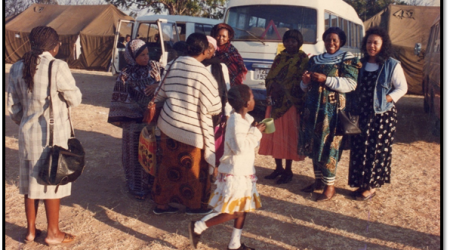

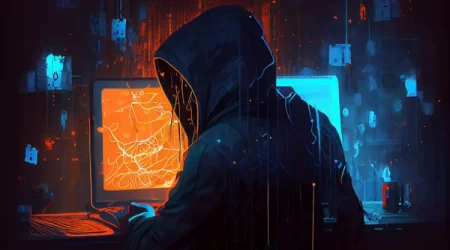
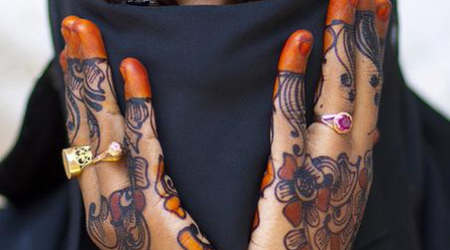
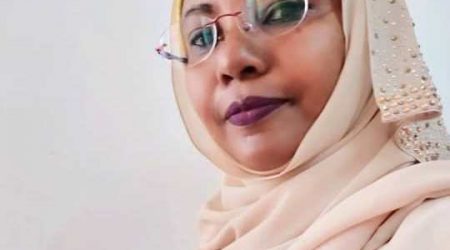

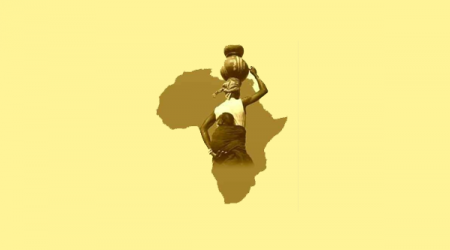

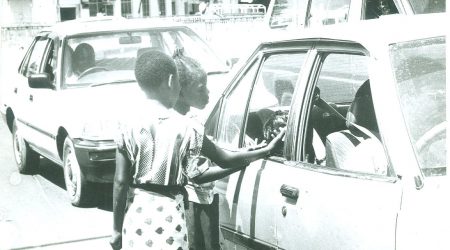

Leave a Reply